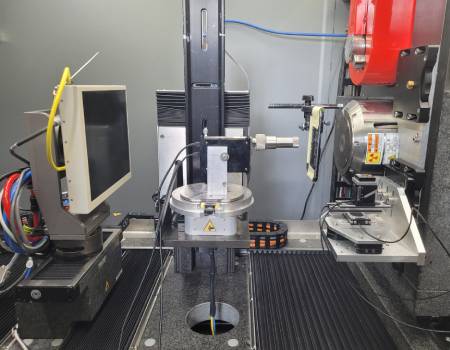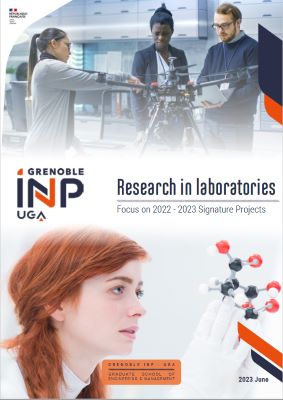
As the carbon footprint of digital technology continues to skyrocket, there is an unprecedented need to find recycling solutions for electronic equipment. Each year, millions of mobile phones and hard drives are destroyed to protect sensitive data. The REPEX project, launched in April 2024, is on a mission to change that. Its innovative solution relies on x-ray radiation to erase data.

Digital technology has become a key sector while at the same time representing a growing source of pollution. Nearly 20 million mobile phones are sold in France each year, of which only 4 million make it to the second-hand market. The massive destruction of devices, including hard drives and phones, is often motivated by the fear of sensitive data being recovered from the discarded electronics.
The idea of using X-rays to erase electronic data dates back to work carried out in part by researchers from CEA that demonstrated the possibility of using this technology to change the state of flash memories. “The ANR MITIX project with CEA and ONERA demonstrated that laboratory sources could modify the state of flash memories,” says Luc Salvo, researcher at SIMAP.** LE GSM, a company specialised in the refurbishment of small electronic devices, quickly realised the potential of X-rays in erasing memory from used phones. “We conducted preliminary tests and developed an initial prototype for an irradiator that produced successful results,” says Lionel Uzzan, CEO of LE GSM. “We contacted CEA and SIMAP for assistance in optimizing the irradiation process.” This was the start of the REPEX project, which eventually brought together several stakeholders, including CEA, SIMAP and specialised companies, with support from the French Agency for Ecological Transition (ADEME) through the ECONUM call for projects. The objective is simple: develop an industrial data erasure method based on LE GSM’s patent that is faster and more reliable than existing software and destruction solutions, while also ensuring the reuse of electronic equipment.
More efficient than software solutions
The main advantage of the X-ray erasure method is the ability to permanently erase the data stored in the flash memories featured in many electronic objects (e.g. phones, SSD drives, USB sticks, SD cards). Unlike existing methods, which rely on software or the physical destruction of devices, this solution makes it possible to recycle the devices faster.
Yet many technical challenges remain. Mobile phones contain a variety of components, which hinders the optimization of the irradiation process. The aim is to find a compromise by achieving complete erasure while still maintaining the components needed for reuse. “The consortium’s goal for the REPEX project is improve LE GSM’s results in the area of their recycling operations and carbon footprint.”
The 42-month REPEX project has the potential to revolutionise the way electronic devices are recycled. This innovative solution could significantly reduce the amount of equipment destroyed each year by processing thousands of phones and hard drives per day. “The solution is directly linked to the energy transition and the circular economy,” Luc Salvo says.
While the initial experiments have proved promising, the path to large-scale industrialization will require national and international certifications, which are currently underway. LE GSM’s main customers, companies and local authorities, have been the first to recognise the value of this new technology and its potential to improve their corporate social responsibility.
LE GSM aims to deploy this technology and help it to become standard practice for processing electronic devices.
*REPEX: REPEX is among the four winners of the ECONUM call for projects aimed at “Supporting the development of an innovative, circular digital economy with reduced environmental impacts” implemented by ADEME on behalf of the French government and led by the General Commission on Sustainable Development, the Directorate General for Enterprise (DGE) and the General Secretariat for Investment (SGPI).
**CNRS, Grenoble INP – UGA, UGA



